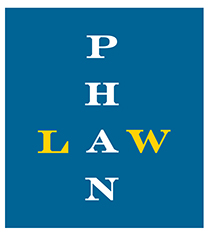How to Respond to a Board of Nursing Complaint – Debunking the Statistical Data Questionnaire
The Board of Nursing Complaint Letter
A nurse who has been investigated at work for wrongdoing should expect a complaint from the Texas Board of Nursing. This notice letter from the Board informs the nurse of a complaint/investigation. The initial notice letter will outline specific allegation(s). This letter further instructs the nurse to file a written response to the allegation(s) by an imposed deadline, typically 30 days from the date of the letter.
The Board notice of complaint letter also attaches a form entitled “Statistical Data Questionnaire.”
The Board of Nursing’s Statistical Questionnaire
At first glance, this form seems harmless. After all, the Board references the form specifically as a questionnaire, calling it “statistical data.” One naturally presumes that the questions asked are innocuous and makes the presumption that the Board is gathering meaningful information for some noble purpose.
After all, the Board apprises the nurse on the form, “Please note that the following information is being collected for statistical purposes.”
Here are the questions contained in the “Statistical Data Questionnaire”:
1. How many years of experience (i.e., med/surg., pediatric, OB, etc) have you had in your current nursing practice?
2. At the time of the incident, how many days in a row had you worked?
3. At the time you received a notice from the Board of Nursing for this reported incident, how long had you worked for the current employer/s?
4. Have you ever been formally counseled by this or any previous employers for nursing practice issues? Yes or No.
5. Have you ever been terminated or asked to resign in lieu of termination due to nursing practice issues?
6. Have you ever been licensed to practice nursing in any other jurisdiction?
7. At the time of the incident(s), list all degrees (nursing and non-nursing) held and the date obtained.
The truth of the matter is that the reference to “statistical data questionnaire” is a misnomer. This form is included and designed for the sole purpose of gathering additional information for use against a nurse in an enforcement action. To be candid, this information is a trap for the unwary.
Information Provided on the Questionnaire is Used in Enforcement Proceedings
When asked, the Board affirmed that it does not accumulate this information in any useable report or research. The Board does not compile this information and extrapolates it at a later point for statistical purposes.
The Phan Law Firm, P.C., is not aware of any purpose by the Board concerning the requested information other than to use it in the enforcement action against the nurse.
To be clear, I want to be plain that I am not advocating that a nurse who receives such a request ignore or not respond to such a request. Pursuant to § 301,465(b) of the Nursing Practice Act, a nurse must respond promptly and fully to a request for information by the board.
A nurse should exercise care in responding to the “questionnaire.”
With this in mind, a nurse should always think very carefully about their response to the Board when responding to the allegation(s). A nurse must be aware that specific questions solicited in the “questionnaire” are designed for the sole purpose of aiding the board in its enforcement action and may adversely affect the nurse.
More often than not, it would be wise to seek the assistance of an experienced attorney in dealing with such a request for responding to a Board complaint. Any information provided to the Board, even if it’s cloaked and disguised in the format of a “questionnaire,” should be reviewed with the utmost care to determine the best course of action and the proper response to the complaint. One must do so to avoid misstatements or, worse, make admissions that may be harmful or detrimental to defending a complaint.










